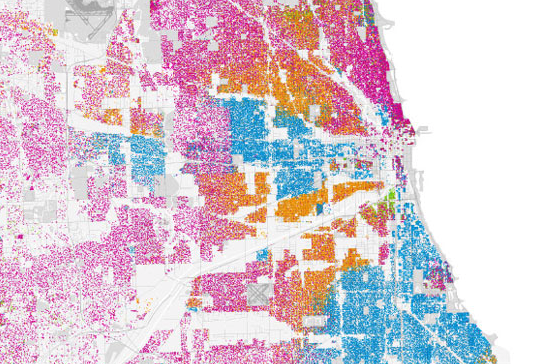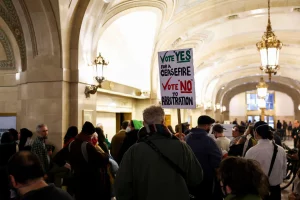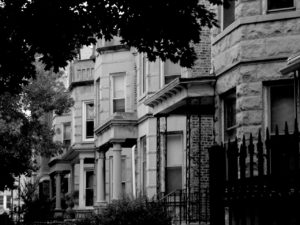Chart Made by Bill Ranklin, interactive here
Yesterday, multiple housing advocacy groups including Pilsen Alliance, the Chicago Housing Initiative, and a representative from the Shriver Center of Poverty Law filed a complaint with the City of Chicago that the “Aldermanic Prerogrative Policy” was used to discriminate against Black and Latinx households.
The complaint reads:
Pursuant to the Fair Housing Act, Title VI of the Civil Rights Act of 1964, and Section 109 of the Housing and Community Development Act of 1974, this complaint challenges the City of Chicago’s longstanding policy and practice of honoring “aldermanic prerogative” for all affordable housing finance, land use, and zoning decisions, in a manner that permits local aldermen and their constituents to veto the placement of affordable housing in their predominately white neighborhoods and wards. The effect of those policies and practices described below has been to discriminate against black and Latinx households, families with children, and persons with disabilities.
It claims that because the city of Chicago has used hyper-local control over the last 80 years of deciding how affordable housing would be implemented has been used by some councilpeople to keep certain people out of affordable housing by race.
“Made up of almost 3 million residents, Chicago’s predominate racial and ethnic groups (white, black, Latinx) each makeup about one third of the City’s population,” the complaint said. “Of the City’s 50 wards, 18 (36%) are majority black, 14 (28%) are majority white, and 14 (28%) are majority Latinx.20 In Chicago, black and Latinx renters are disproportionately represented among those in need of affordable housing. 65% of black, 57% of Latinx, and 28% of white renters have incomes below 50% of the Area Median Family Income. This means that black and Latinx renters are more likely to need and be eligible for affordable or subsidized housing than are white renters.”
This claim is founded on the recognition that Chicago has been historically segregated, which the City of Chicago admitted to the U.S. Department of Housing and Urban Development, according to the complaint.
“When making decisions that shape Chicago neighborhoods, aldermanic prerogative forces aldermen not to comply with their civil rights obligations and instead do what will allow them to maintain elected office,” the complaint said.
The way that this has been implemented in each ward is specific to the ward. In white and low poverty areas, aldermen “erect barriers to affordable housing, particularly family affordable housing, to preserve the status quo.”
“In turn, aldermen in predominately black and Latinx wards that have faced chronic disinvestment and whose constituents need affordable housing more often welcome it,” the complaint said. “At the same time, aldermen in gentrifying areas face diminished power to stave off the market forces creating an increasingly unaffordable housing landscape. The policy of aldermanic prerogative, in all its many forms, perpetuates and maintains residential segregation in the City of Chicago.”
The Shriver Center for Poverty Law posted on Facebook with a link directly to the document on the Shriver Center website, calling on the city to commit to racial equity planning for housing.












Be First to Comment